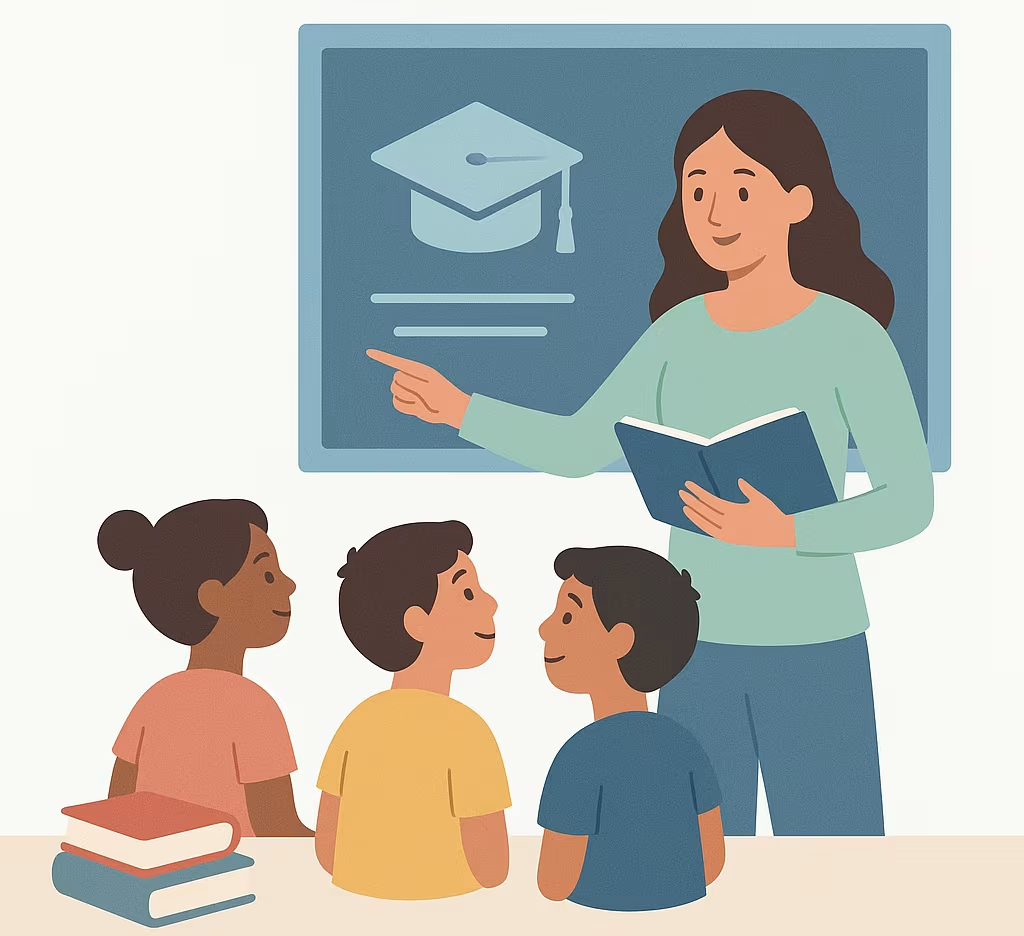Top NGOs in Educational Sector in India 2025

Table of Content
Key Takeaways
- Purpose: This list highlights the most effective educational NGOs in India (2025) that are bridging literacy gaps, enabling digital education, and empowering girls and tribal youth.
- Impact: Together, these NGOs reach over 40 million children annually, working across urban slums, rural villages, tribal areas, and digitally dark zones ([ASER Report 2024], [UDISE+ 2023]).
- Selection Criteria: Reach, rural presence, measurable impact, digital innovation, focus on girls and tribal children, and transparency.
How to apply for CSR funding in India 2025
Even after three decades of Sarva Shiksha Abhiyan and RTE, India’s rural learning crisis persists.
As per [ASER 2024]:
- 76.6% of Class 3 students in government schools cannot read a Class 2 text
- 66.3% cannot do basic subtraction
Secondary-level dropout is still at 12.6% nationally, and crosses 20% in Odisha, Assam, and Bihar
Only 18.5% of rural schools have internet access, compared to 47.3% in urban schools ([UDISE+ 2023])
Gender barriers and lack of female teachers continue to affect rural girl child retention
That’s where India’s education NGOs step in—acting as last-mile enablers, digital bridges, and systemic reformerslly.
1. Pratham Education Foundation
- Area of Work: Foundational literacy, numeracy, remedial education, youth skilling
- Region: Pan-India (23+ states; urban, rural, and tribal)
- Impact/Achievements:
- Reaches 6 million children and youth annually
- Runs the ASER nationwide learning survey
- Innovative community-based models recognized globally
- Website/CTA: pratham.org
2. Nanhi Kali (K.C. Mahindra Education Trust)
- Area of Work: Girls’ education, digital and life skills, school supplies
- Region: 14 states, with a focus on underserved communities and slums
- Impact/Achievements:
- Supported education of over 870,000 girls since inception
- Comprehensive support: mentorship, nutrition, digital literacy
- Website/CTA: nanhikali.org
Checkout this free template pdf of CSR proposal
3. Teach For India
- Area of Work: Quality teaching, classroom transformation, alumni-led system change
- Region: Eight major cities, spreading via alumni to rural policy and school systems
- Impact/Achievements:
- Alumni reaching 33 million children (1 in 10 nationally)
- Over 150+ education ventures initiated by alumni
- Website/CTA: teachforindia.org
4. Smile Foundation
- Area of Work: Primary/secondary education for underprivileged children, digital literacy, life skills
- Region: All-India, with focus on urban slums and remote communities
- Impact/Achievements:
- 200,000+ children reached through Mission Education program
- Leads multi-dimensional programs in education, health, and livelihoods
- Website/CTA: smilefoundationindia.org
5. Goonj
- Area of Work: Rural education infrastructure, resource redistribution, behavior change
- Region: Rural and tribal belts—Rajasthan, Karnataka, Chhattisgarh, Odisha, Bihar
- Impact/Achievements:
- Supported 1,900+ schools, distributed over 451,000 books
- Resource kits and infrastructure for 200,000+ students
- Website/CTA: goonj.org
6. Akshaya Patra Foundation
- Area of Work: Nutrition-linked education—Mid-Day Meal Scheme
- Region: 14 states, 2 UTs, focus on government school children
- Impact/Achievements:
- 2 million children served daily in 22,000+ schools
- Enhanced classroom attendance, learning capacity
- Website/CTA: akshayapatra.org
7. Ramagya Foundation
- Area of Work: Holistic primary education, skill development, teacher training
- Region: Uttar Pradesh and North India, focus on semi-urban and rural
- Impact/Achievements:
- School and vocational centers in underprivileged regions
- Integrates teacher capacity building and community engagement
- Website/CTA: ramagyafoundation.org
8. Children of India Foundation
- Area of Work: Formal education access, girl child empowerment, child protection
- Region: South India, especially Tamil Nadu and Karnataka
- Impact/Achievements:
- 9,457 children reached with formal educational support, 853 children trained as “change agents”
- Emphasis on life skills, gender empowerment
- Website/CTA: childrenofindia.in
Why should CSR invest in Education infrastructure
How NGOs can pitch for CSR grants in India 2025
Hospital Floor Plan Guide 2025
Before engaging with any NGO:
- Check for 80G, 12A, and FCRA registration for tax-exempt and international giving
- Review impact metrics: students reached, retention rates, and digital inclusion
- Seek NGOs with a rural footprint and measurable long-term change
Prefer volunteer-ready models like eVidyaloka (online), TFI (full-time), or Smile (event-based)
From remote tribal belts to tech-poor village schools, these educational NGOs in India are not just teaching—they’re transforming.
Whether you live in Delhi, Patna, or Lucknow, there’s an NGO near you working to reduce learning poverty.
Want to build schools, universities, or hospitals? Partner with BuiltX, India’s first construction firm exclusively supporting infrastructure that build for purpose.
Q1: What are the best educational NGOs in India in 2025?
A: Pratham, Educate Girls, eVidyaloka, Smile Foundation, and Teach For India stand out for reach and rural engagement.
Q2: Which NGOs work on rural education and digital learning?
A: eVidyaloka, Educate Girls, and Goonj lead in rural initiatives, especially with low-tech and community-driven models.
Q3: Can I volunteer online for rural education?
A: Yes. eVidyaloka offers virtual teaching. Slam Out Loud and TFI also offer remote mentoring roles.
Q4: How are these NGOs evaluated?
A: Via ASER assessments, UDISE+ tracking, impact reports, and third-party audits from GuideStar India, GiveIndia, etc.
Q5: How can BuiltX support NGO infrastructure?
A: BuiltX constructs high-impact classrooms, toilets, and digital hubs for NGOs—at 20–25% lower costs.
